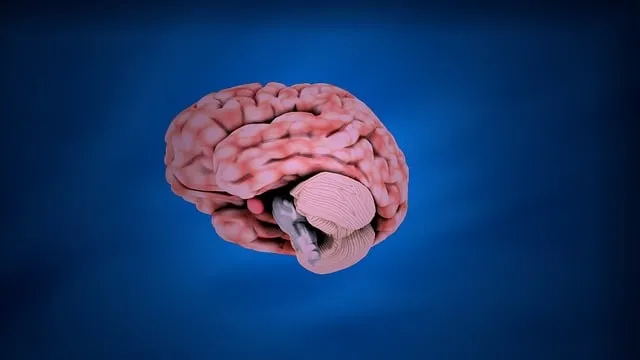Substance abuse is a cycle linked to underlying mental health conditions, with severe consequences. The Castle Rock Kaiser Permanente mental health center addresses this issue by offering evidence-based therapies like CBT for stress, anxiety, and depression management. They focus on personalized care, cultural sensitivity, and early intervention through strategies such as trauma support and self-awareness exercises. Their holistic approach builds resilience by teaching conflict resolution and emotional well-being promotion techniques, fostering long-term recovery and a supportive recovery community within the center.
Substance abuse poses significant risks to individuals and communities, but proactive strategies can mitigate these dangers. This article explores comprehensive risk reduction approaches, focusing on the essential role of facilities like Castle Rock Kaiser Permanente Mental Health Center in providing prevention, early intervention, and long-term support. We delve into understanding substance abuse’s complexities, identifying personal risk factors, and employing evidence-based strategies. By examining these key areas, we aim to empower individuals and communities with tools for fostering resilience and sustainable recovery.
- Understanding Substance Abuse and Its Risks
- The Role of Castle Rock Kaiser Permanente Mental Health Center in Risk Mitigation
- Identifying Personal Risk Factors: A Proactive Approach
- Evidence-Based Strategies for Prevention and Early Intervention
- Building Resilience and Long-Term Recovery Support Systems
Understanding Substance Abuse and Its Risks

Substance abuse is a complex issue that goes beyond mere indulgence. It’s a recurring cycle characterized by compulsive substance use despite harmful consequences, often stemming from underlying mental health conditions such as depression or anxiety. At Castle Rock Kaiser Permanente mental health center, we recognize that understanding these risks is paramount in effective treatment and prevention.
The dangers associated with substance abuse are multifaceted. They can lead to severe physical health issues, including organ damage, addiction, and even death. Furthermore, they contribute to a range of social problems, from strained relationships to legal troubles. Reducing these risks necessitates a multi-faceted approach, including Mental Illness Stigma Reduction Efforts to encourage understanding and support for those struggling, fostering Emotional Regulation techniques to manage triggers and cravings, and promoting Cultural Sensitivity in Mental Healthcare Practice to address the unique needs of diverse populations.
The Role of Castle Rock Kaiser Permanente Mental Health Center in Risk Mitigation

The Castle Rock Kaiser Permanente Mental Health Center plays a pivotal role in mitigating risks associated with substance abuse within the community. This specialized center offers a comprehensive range of services tailored to address the complex needs of individuals struggling with addiction and mental health disorders. By providing evidence-based therapies, such as cognitive-behavioral therapy (CBT), the center empowers patients to develop effective coping mechanisms for stress, anxiety, and depression—all of which are significant risk factors for substance abuse.
Through its dedicated team of psychiatrists, psychologists, and counselors, Castle Rock Kaiser Permanente focuses on mood management, confidence boosting, and emotional regulation as core strategies for risk reduction. These interventions not only help individuals gain a deeper understanding of their mental health challenges but also equip them with the tools to navigate triggers, resist cravings, and maintain long-term recovery. The center’s holistic approach ensures that patients receive personalized care, fostering a sense of security and resilience necessary for overcoming substance abuse.
Identifying Personal Risk Factors: A Proactive Approach

Identifying personal risk factors for substance abuse is a proactive step towards maintaining mental wellness, a service offered by Castle Rock Kaiser Permanente mental health center. This process involves understanding one’s unique circumstances, including genetics, past traumas, and environmental influences. By acknowledging these factors, individuals can better navigate potential triggers and make informed decisions regarding their mental health.
At Castle Rock Kaiser Permanente, we emphasize the importance of cultural competency training for healthcare providers to address these complexities effectively. Our approach includes social skills training, ensuring that both patients and caregiving staff are equipped to handle challenges related to substance abuse. This comprehensive strategy fosters a supportive environment, enabling individuals to take charge of their mental wellness and make positive choices.
Evidence-Based Strategies for Prevention and Early Intervention

Evidence-based strategies play a pivotal role in preventing substance abuse and facilitating early intervention, offering hope and healing to individuals struggling with addiction. At the Castle Rock Kaiser Permanente mental health center, professionals employ a multi-faceted approach that combines various techniques proven effective in addressing the complex nature of substance misuse.
One such strategy is incorporating self-awareness exercises designed to help individuals understand their triggers and emotional responses. These exercises encourage introspection, fostering a deeper connection with one’s thoughts and feelings. Additionally, trauma support services are integral to the prevention narrative, offering safe spaces for processing and healing past traumas that often underlie substance abuse. The center’s emphasis on emotional healing processes empowers clients to develop healthier coping mechanisms, promoting long-term recovery and resilience.
Building Resilience and Long-Term Recovery Support Systems

Building resilience is a cornerstone of long-term recovery from substance abuse. At Castle Rock Kaiser Permanente mental health center, we understand that supporting individuals in their journey towards sobriety requires a holistic approach. This includes equipping them with effective conflict resolution techniques and emotional well-being promotion techniques. By fostering these skills, we empower our clients to navigate challenges and maintain stability, laying the groundwork for lasting recovery.
Furthermore, our programs prioritize empathy building strategies, creating a safe and supportive environment where individuals feel understood and valued. This approach not only enhances their ability to cope with triggers but also strengthens their connections to others in recovery, forming a robust support system. Through these comprehensive interventions, Castle Rock Kaiser Permanente mental health center is dedicated to enabling long-term recovery and promoting the emotional well-being of our clients.
Substance abuse poses significant risks, but with proactive strategies like those offered by the Castle Rock Kaiser Permanente Mental Health Center, individuals can navigate and mitigate these dangers. By understanding personal risk factors, adopting evidence-based prevention methods, and building supportive recovery systems, people can take control of their well-being. The center’s expertise in mental health services plays a vital role in fostering resilience and long-term recovery, ensuring a brighter future free from substance abuse’s grasp.






